Countries with the worst education system in Africa: The finest base that can be offered for individuals to lead productive lives is education. However, when compared to a global norm, the educational system is incredibly uneven. Many issues, including war, gender inequality, and poverty, work against children’s ability to have an excellent learning experience. The hardest-hit continent in terms of this issue is Africa. In the 2000s, nine out of ten of the countries with the greatest proportions of children who have never attended school were in Africa. The Human Development Report Education Index currently places 10 nations, 10 of which are in Africa.
We’ll be providing you with a list of the top African nations with the worst education systems, based on the UNESCO Educational Development Index (EDI) for that organisation.
Recommended: How To Become a Successful Entrepreneur
Top 8 Countries in Africa with the Worst Education System
1. Niger: Niger has the poorest educational system in Africa and the whole globe according to the United Nations Education Index. With an EDI of 0.528, Niger has the weakest educational system in all of Africa. The educational landscape in this nation is dismal, with a 28.7% adult literacy rate tied for the lowest on the list. The nation has the lowest level of education in all of Africa. The average length of time spent in school in Niger, which has a population of 21 million, is only 1.5 years. With just a little over 15% of adults being literate, it is the least educated country in the world. Only 5.2% of Nigerians have completed any secondary education, and roughly 31% leave school before finishing kindergarten.
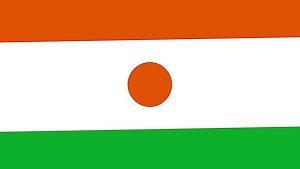
The government of Niger manages education in a very complicated way. Social issues include child labour and early marriages. Due of poverty, expanding the educational system is the biggest problem. One of the worst nations in the world in terms of educational quality is Niger.
2. Burkina Faso: The second nation on the list with an EDI of 0.894 is Burkina Faso. With an ALR of 27.7%, the nation has the lowest adult literacy rate in the world. Only 2% of the adult population has a secondary education out of this total.
Burkinabe students spend fewer than 1.5 years in the classroom on average, and the enrollment rate is 3.3%.Fortunately, thanks to government assistance and legislation, Burkina Faso has generated some strides in closing the gender gap in education.
Recommended: Most Lucrative/Profitable Courses To Study In The World
3. Mali: Mali is ranked third with an adult literacy rate of 31.1% and an EDI of 0.612. Women have lower literacy rates than males do. When the nomadic Tuareg tribe gained control of the northern region of the nation and pushed for independence from the central Malian state in 2012, there was a great deal of internal conflict within the nation.
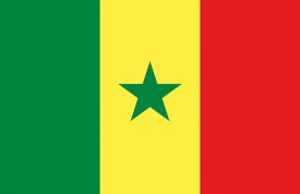
Mali has one of the poorest educational systems in the whole world. The difficulties began with the school system, which can be linked to the history of the nation. Throughout its history, the nation was occupied by a wide range of nations, each of which had a diverse array of educational systems.
Mali has struggled to educate its pupils in a single, united system due to the diversity of the country’s educational institutions, which has resulted in a lack of standardisation. Mali had a 61% enrolment rate in primary schools as of 2017. However, since only 52% of the 18.2 million West African nations’ teachers are adequately prepared and equipped to teach, students in primary school effectively have a 50/50 chance of having a good teacher.
4. Central African Republic: One of the nations with a poor educational system is the Central African Republic. According to UNESCO’s Education rating, the Central African Republic has one of the poorest educational systems in the world with a score of 0.617 EDI. The majority of its education is still of very poor quality, and the country has the second-highest percentage of school dropouts in the whole globe.
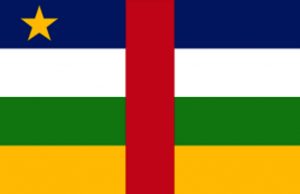
The Central African Republic’s government has not invested a lot of money and resources in the educational system, which has caused schools to close, left students without the fundamental tools they need to learn, like books, and prevented teachers from getting paid on time. The issue of low turn up is another one.
Also see: Ways to Tell If Someone is Lying on the Phone
5. Ethiopia: ALR of 39%, the fifth-lowest in the world, and an EDI of 0.622 put Ethiopia in fifth place, just ahead of Eritrea by 0.001. For Ethiopia’s schoolchildren, the system appears hopeless because it has one of the lowest educational figures in the whole globe.
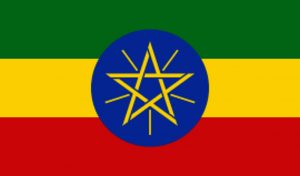
The situation appears to be nearly hopeless with a Gross Enrollment Ratio of 5.5%. However, according to a recent World Bank article, the WB’s Board of Executive Directors is in favour significant funding for Ethiopia to improve the quality of its primary and secondary school instruction for more than 21 million students. To help the initiative achieve its objective of raising the country’s educational quality, $550 million will be invested. The initiative should be a success, and Ethiopia should be able to move up the list of countries with the best education.
Also see: Cheapest Places to Live in the United Kingdom
6. Eritrea: With an adult literacy rate of 67.8%, Eritrea, which is sixth on the list and is rated 115th globally, has a 0.623 EDI. Eritrea also has one of the highest EDIs on the list. The country has the lowest Gross Primary Enrollment ratio on this list (45%) and a pitiful Tertiary Enrollment ratio of only 2%. The typical Eritrean student leaves school before turning 10 years old. A teacher shortage has recently been present in Eritrea as well.
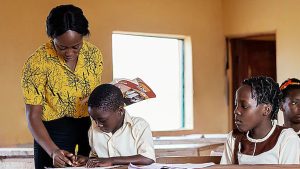
Eritrea only spends 2.1% of its GDP on education, a sign of how little it can contribute due to strife. To make matters worse, if a primary school student is having any difficulties with a class, just 69% of them will receive much individual attention. However, Eritrea is making efforts and accomplishments to guarantee that her educational system undergoes significant improvement.
Recommended: Countries With The Highest Rate Of Cybercrime
7. Guinea: The West African nation of Guinea’s educational system is fairly well depicted by its position of 114 in the UNESCO Education analysis. Its Adult Literacy Rate of 41% ranks as the tenth lowest in the world, and its “Satisfaction with Education Quality” level in its HDI ranking is a disgraceful 3 points. The EDI rating is 0.634, according to UNESCO.
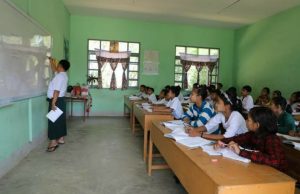
The nation is now seeing demonstrations in the capital city of Conakry as a result of a series of power outages that particularly affected the poorest segments of the populace. In the subsequent riots, Guinean civilians started protesting in the streets and even vandalised government buildings. This kind of ongoing societal upheaval indicates that governments and students are not focused at all on enhancing education.
8. Zambia: Zambia is in ninth place with a 0.694 EDI. Nine state universities and a number of technical colleges offer higher education in Zambia. Zambia also established the Ministry of Science, Technology, and Vocational Training (MSTVT) in 1992 to promote development in technological disciplines.
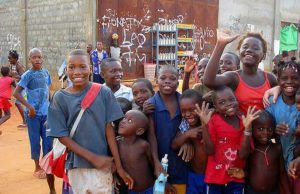
Zambia has little possibilities for postsecondary education. Most students who finish secondary school continue their education at one of the several institutions in the nation. Normally, they all choose students based on aptitude; there is fierce rivalry for spots.
Recommended: Hardest Musical Instruments To Play and Learn
Conclusion
You have seen the ranking of the world’s worst educational systems. One of any nation’s greatest treasures is supposed to be education. However, there are regional differences in the value and standard of education. Every youngster should have access to a top-notch education.

Edeh Samuel Chukwuemeka, ACMC, is a lawyer and a certified mediator/conciliator in Nigeria. He is also a developer with knowledge in various programming languages. Samuel is determined to leverage his skills in technology, SEO, and legal practice to revolutionize the legal profession worldwide by creating web and mobile applications that simplify legal research. Sam is also passionate about educating and providing valuable information to people.